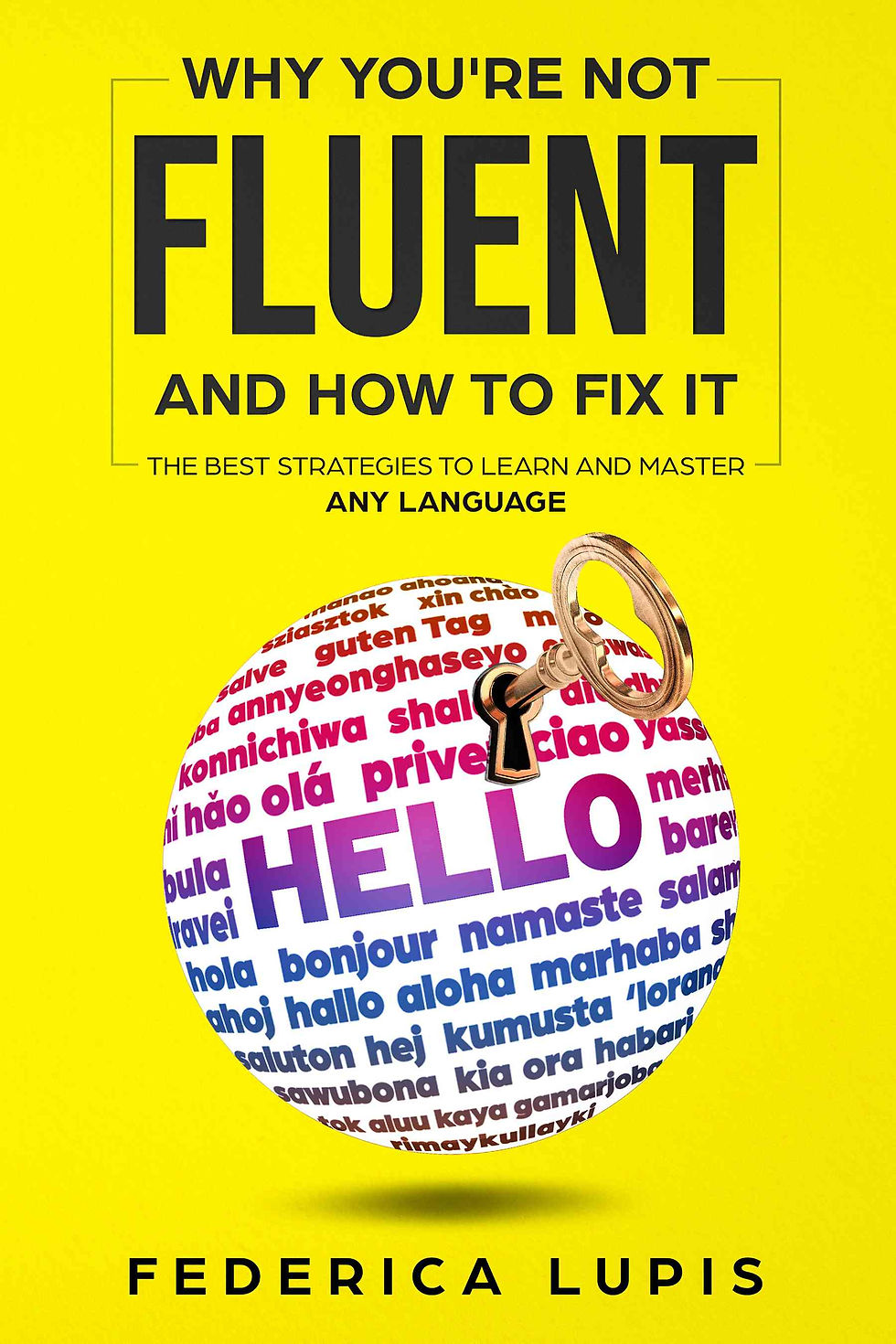
Photo by Einar Storsul on Unsplash
By Federica Lupis, https://www.federicalupis.com/
Author of "Fluent On The First Try" and "Why You're Not Fluent and How To Fix It"
Language trainer, interpreter and translator.
Now that you’ve made your choice – one-on-one or group classes – you probably can’t wait to get started. Which grammar book should you buy? Should you start watching movies in a foreign language? How about changing your home decoration to feel more immersed in the culture of the foreign language?
Wait a minute…
Mastering a new language is not just about the learning process. Having a positive mindset is just as essential – and by positive mindset, I don’t mean living in la-la land and thinking you’ll become fluent in a month.
In this post, we’ll debunk some common myths about language learning and make sure they don’t get in the way.
Let’s begin with the most common one:
‘I shouldn’t make any mistakes.’
Excuse my language, but that’s… rubbish. I don’t know when and where we all got this idea, but it’s wrong, discouraging and misleading.
How do children learn a language? They try, make mistakes, correct them and slowly improve. So why should we be perfect?
Making mistakes is how we all learn. There’s no other way to improve.
Of course, we want to make fewer and fewer, but that doesn’t happen overnight. It takes trial and error, and by accepting this, learning a language will become a lot more fun.
You will start thinking about mistakes as a way to learn, not as something to be ashamed of. So let’s change ‘I shouldn’t make any mistakes’ into ‘I’ll do my best to learn even if I make mistakes’. Sounds better, right?
The second myth is probably more ingrained than the others:
‘First I get grammar right, then I’ll talk.’
I couldn’t find a good emoji to fully express my feelings, so I’ll use a picture instead.

Photo by Einar Storsul on Unsplash
Think about sports. Whether you love soccer, cricket, basketball or extreme ironing – it’s a sport, I promise – think of the rules of these sports as the grammar of a language.
Before you start playing, you try to understand the rules the best you can, but how do you learn to play? You don’t sit down with a book; you put on your sports gear and do it. Similarly, you can learn grammar by filling in exercises, but you also need to speak if you want to master a language.
Unless your only objective is to read your favourite author in their original language, speaking will be one of your ultimate goals.
Well, let’s make it happen! Let’s learn grammar and put it into practice. Let’s start speaking asap!
And now, for the closure, give it up for our last myth:
‘I’m too old to learn a language. I should have started in 1885’.
There’s no typo. I purposely chose a year when none of us could have been born.
For some reason, we think we are too old to do things. ‘I’m too old to read comics. I’m too old to do kickboxing. I’m too old to learn Japanese.’ This is actually me talking to myself a while ago.
Nonsense. I now do all of these things and ignore my thoughts if they try to get in the way.
We are never too old to learn a new language.
Sure, if we started to learn as toddlers, we would be fluent by now. But we could use the same reasoning for everything we’ve done in our life.
Toddlers don’t learn better because they’re smarter. Otherwise, they would run businesses while we take care of them.
The truth is that toddlers have more time to learn and practice, and they are not held back by mistakes. If you don’t believe me, check out this article. It will confirm that we rock more than we think.
To sum up, before you start learning a language, get ready to:
· Make mistakes and embrace them as a way to learn.
· Start speaking as soon as you have basic grammar knowledge.
And remember, we are never too old to learn!
Thanks for reading. I’ll catch you all next month!
If you enjoyed my article, you can discover my tried and tested language learning strategies in my books:
and here are this month's book offers:
This article was brought to you by NN Occupational Health, experts in Pre-Employment Screening.
Go to the Italian version
To read my previous article click below:



Comentarios